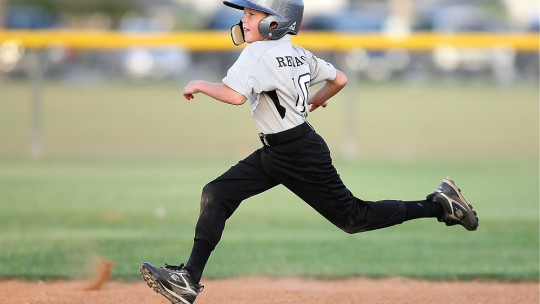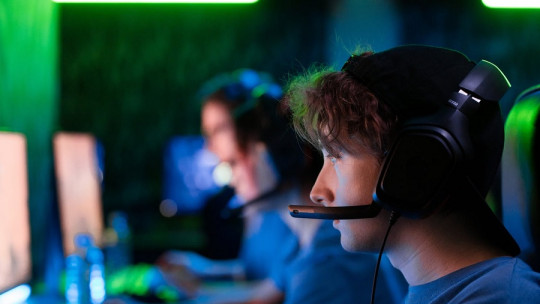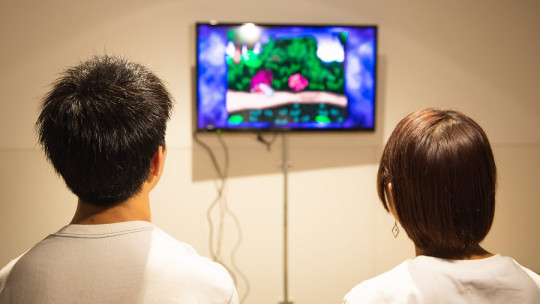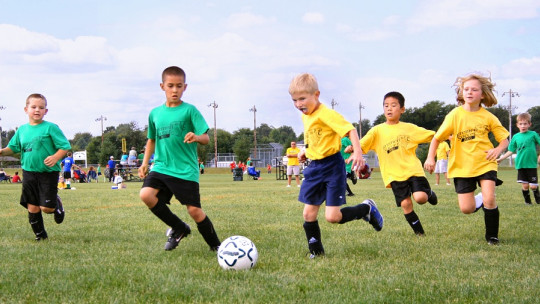
Luis’s parents took him to training every afternoon. He didn’t particularly like football, but he didn’t mind going either. He had a good time with his teammates, although sometimes the coach called him out because he said that he was distracted and didn’t know anything. On Saturdays he played games. He normally played little, but he didn’t care because he also had a good time on the bench talking with his friends. The truth is that he did not understand why some took the results of the games so seriously.
His teammate Pedro was a boy who worked hard in training. He always arrived on time and was super attentive to the coach’s instructions. He liked to improve Sometimes he even stayed longer practicing what he couldn’t completely master. On game days he was not nervous, because he knew that he would play only a few minutes. His coach sometimes told him that he had no blood in his veins.
However, Hector was the complete opposite. In the games “he gave his all,” as he said. He liked to win above all else. Everyone told him that he was very good, and the truth is that he had great qualities. But he didn’t like training at all. He used to be late and sometimes he was even absent with some excuse. During training he used to distract others with his jokes and did not pay much attention to the coach’s instructions. Only the little time he played a little game was when he really got his act together. The coach always started him because, even though he trained little, he was very good.
For his part, Juan was a very committed player. He trained hard, always trying to do things a little better. He paid close attention to his coach’s instructions and he tried to rehearse everything he learned in training to put it into practice on game day. On Saturdays he was unstoppable on the field. I wanted to win at all costs, but he also tried to do things better than in the previous game. He knew what he did well and took advantage of it, but he also knew what he could improve and tried to do it in each training session.
These four types of players, and especially the first three, tend to be on almost all youth soccer teams. The way they behave both in training and in games has a lot to do with the type of motivation that predominates in them.
Why it is important to have balanced motivation
The motivational orientation towards the ego It is that of those players who have their goals set on improving compared to others. They measure their own value in relation to others. They care about being starters, playing more minutes, scoring more goals, being the best…
Motivational orientation towards the task It is the one that those players have whose objective is personal improvement with respect to themselves. They focus on improving their own technical, tactical, physical and psychological skills that can make them a better player than they were the previous season. They focus on aspects such as improving control of the ball with the opposite foot, making better passes, learning to swing, to take position on the field, improving their resistance or speed…
Player motivation moves on a continuum between these two orientations. In this way, Luis would have low ego motivation and also low task motivation. The normal thing is that, if we do nothing, a boy like Luis ends up leaving football to do another type of sport or activity that attracts him more.
Erroneously, attempts are usually made to instill motivation towards results in these children, trying to make winning something very attractive for them and in this way they become more involved in the activity. However, the first step would be to try to motivate them towards the task, towards their own personal improvement. In this way you will achieve greater self-confidence and, in the event that you finally abandon football, you will have learned some important values for your life: the importance of effort, constant improvement, self-evaluation, personal work to contribute to the team. , … His time in football will have been worth it.
The management of motivations
Pedro already has this high motivational orientation towards the task and, however, maintains a low motivational orientation towards the ego. Possibly Pedro needs a little push to take that step to translate that personal improvement into the results of the competition. Positive reinforcement of their progress from the coach and their parents It can help you strengthen your self-confidence and from there encourage you to achieve some result objectives. You should start with objectives that he sees as attainable and move forward. As he plays more minutes, as he sees that his progress translates into important contributions to the team, he will feel more confident and his ego motivation will grow, without abandoning his motivation towards the task.
Juan is in the ideal situation. He is the type of player that any coach would want for his team. He has a fantastic balance between the two types of motivation, so that when he encounters performance difficulties, he will know how to deal with them. This type of motivational orientation It will also help you to face the situations in your life current and future, outside of sport.
However, Héctor is in a risky situation. Boys like Héctor are people with innate abilities that have made them stand out from a very young age. However, by feeling superior to others, They have not acquired the capacity for work and effort for personal improvement As Héctor grows, these skills will become equal to those of his peers and, having not learned to be self-critical, he will always blame poor sporting results (scoring fewer goals, playing fewer minutes, etc.) on others. Excuses will begin such as “the coach has a thing for me”, “they are all bunches on this team”, “they don’t give me good passes”…
If we don’t remedy it, Héctor will start by changing teams, thinking that this will improve his results. But as long as his motivational orientation is not minimally directed towards the task, Héctor will continue not knowing how to deal with adverse situations. Finally, it is very likely that Héctor will abandon football, possibly he will abandon all types of sports. And that he abandons him in a bad way, trying to look elsewhere for that recognition that he previously had from others. Many kids like Héctor end up getting into trouble seeking praise from gangs, misdirecting their lives, trying to stand out in some way to feed his ego.
Take advantage of options to enhance personal growth
Both coaches and parents must learn to recognize what type of motivational orientation our children have when they set goals. And even more so, to recognize what type of motivational orientation we are reinforcing in them with our comments. Do we encourage them when they improve the execution of a task or do we only focus on the result of the game? Where do we put the focus? It depends, in large part, on whether our boys draw great lessons from their time in football or whether it becomes the opposite.








